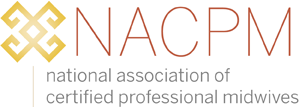Introduction Occupational licensing portability is crucial in the evolving healthcare landscape, especially in midwifery. State-specific licensure restrictions hinder access to maternal health services. This project, in collaboration with CSG, seeks to address these challenges by establishing robust interstate compact agreements.
Project Goals and Objectives
Develop model legislation for licensed midwifery interstate compacts.
Create a legislative resource kit for state adoption.
Host a summit for state policymakers to promote the compact.
Establish licensure reciprocity and streamline interstate practice.
Support military spouses in their professional mobility.
Enhance cooperative regulation and information exchange among states.
Scope of Work and CSG Collaboration
CSG Technical Assistance: CSG, funded by the DoD, will provide staff personnel, convenings, materials, and technical assistance for model legislation development.
NACPM’s Role: NACPM will lead the initiative’s strategic planning, stakeholder engagement, and advocacy efforts. Our focus includes:
Drafting model legislation in collaboration with CSG.
Developing and disseminating the legislative resource kit.
Organizing and facilitating the policymakers' summit.
Letters of Support for this Initiative were received from the following allies.
ICM recognized organizations
North American Registry of Midwives (NARM)
Midwifery Education Accreditation Council (MEAC)
American College of Nurse-Midwives
MEAC Accredited Institutions
Mercy in Action College of Midwifery
Midwives College of Utah
Commonsense Childbirth School of Midwifery
Allied Organizations
American Association of Birth Centers
Bold Futures
Elephant Circle
International Institute for Health Care Professionals (IIHCP)
National Black Midwives Alliance
Policy Institute for Community Birth and Midwifery
Purchaser Business Group on Health
Quilted Health
Phase 4: Implement a nationwide advocacy campaign.
Graphic Design and dissemination
Budget: $6,500
Phase 5: Offer ongoing support to states for compact adoption.
~120 hours of expert support
Budget: $6,000
Implementation Plan and Estimated Budget Needs
Phase 1: Gather letters of support, write and submit the application
Due January 31, 2024
Budget: $2,500
Phase 2: Collaborate with CSG for research and development.
Coalition building and meeting time.
Budget: $7,500
Phase 3: Plan and conduct the policymakers' summit.
Budget: $30,500
Budget and Funding Needs NACPM requires grant funding for areas not covered by CSG, including advocacy efforts, campaign execution, and additional resources for summit participants. Funding is crucial as NACPM will not receive direct funding from CSG’s DoD-supported initiative but in-kind donations.
Benefits
Licensure Portability: Facilitates cross-state practice, especially significant for military spouses.
Access to Healthcare: Increases availability of midwifery services, addressing maternity deserts.
Public Health Enhancement: Strengthens states’ abilities to protect public health.
Cooperative State Relations: Fosters state cooperation in multistate practice regulation.
Future Considerations
NC-SARA Participation: In light of new US Department of Education regulations, NACPM’s future participation in the National Council for State Authorization Reciprocity Agreements (NC-SARA) may become crucial for continued educational access across states.
Conclusion This initiative represents a pioneering step in occupational licensure reform for midwives. NACPM’s collaboration with CSG, supported by DoD funding, coupled with additional grant funding, will pave the way for enhanced professional mobility and improved access to maternal health services.
Call to Action NACPM seeks support from partners and funders to realize this innovative project. Your contribution will be instrumental in shaping the future of midwifery practice and healthcare accessibility across state lines.


